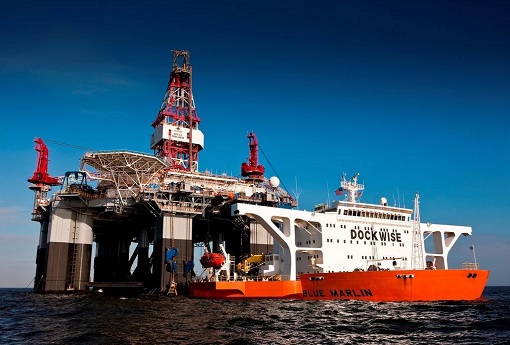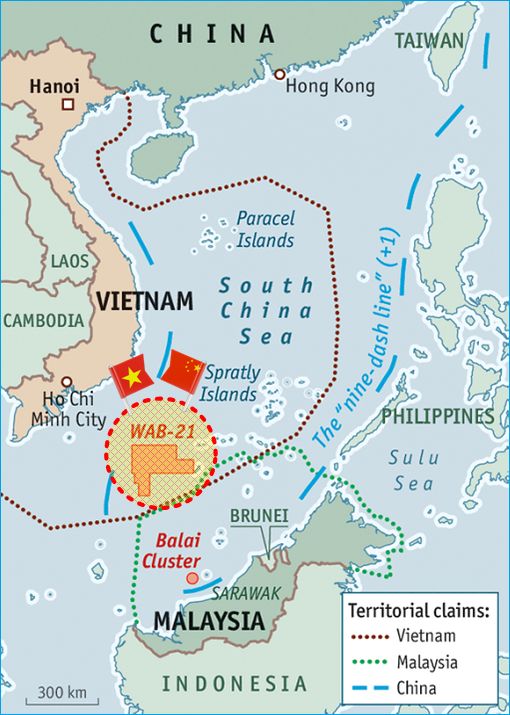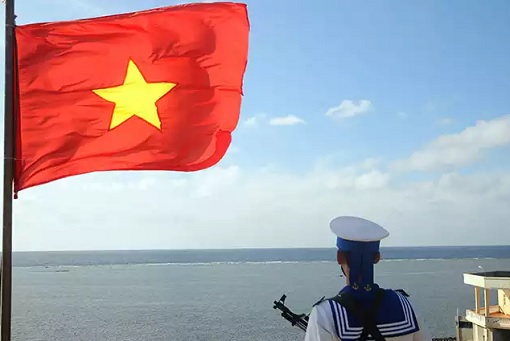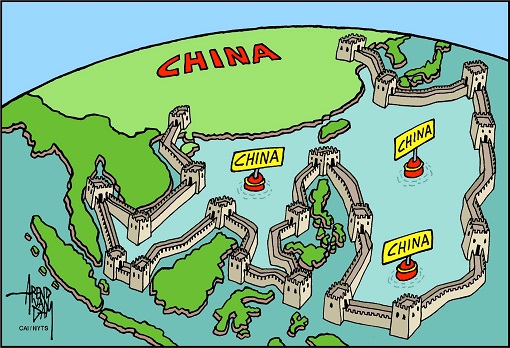Philippine President Rodrigo Duterte revealed 2 months ago that Chinese counterpart China Xi Jinping had warned him there would be “war” if Manila tried to enforce an arbitration ruling and drill for oil in a disputed part of the South China Sea. He was, of course, referring to Hague’s award which granted Philippine sovereign rights in its 200-mile Exclusive Economic Zone to access offshore oil and gas fields.
If the Philippines “Dirty Harry” thinks the Chinese was bluffing, he could always try to test the water and start drilling. But after a report that Vietnam has finally decided to quit drilling instead of risking a war with China, President Duterte might want to think twice about challenging Beijing. Vietnam has apparently ordered a private company to halt a gas-drilling expedition.
The Vietnamese and Spanish team’s drilling exercise began on 21 June, 2017 in an area of sea about 400km (250 miles) off Vietnam’s south-east coast. It had confirmed the existence of a major gas field. Talisman-Vietnam, a subsidiary of Spain’s Repsol Oil, was initially given the green light by the Vietnamese government to start the exploration in the disputed water.

Now, Talisman-Vietnam, formerly owned by the Canadian company Talisman but has been part of the Spanish-owned Repsol group since 2015, has been told that the project is being terminated. Repsol executives were told by the government in Hanoi that Beijing had threatened to attack Vietnamese bases in the Spratly Islands if the drilling did not stop.
The Vietnamese government has leased the area, which it calls Block 136-03, to Talisman-Vietnam. However, Beijing has sold the same drilling rights in the area, known in China as Wan-an Bei-21, to a Hong Kong-listed company called Brightoil – a crony associate. Beijing has thus regarded Vietnam’s latest drilling expedition as a direct challenge to its sovereignty.
General Fan Changlong, vice chair of China’s Central Military Commission, cut short an official visit to Vietnam and cancelled a friendship meeting at the China-Vietnam border, just days before the drilling takes place. Last week, however, tension between the two nations reached a critical level when China issued a direct threat – it would attack Vietnam’s bases in the Spratly Islands.

Back in 2014, coastguard vessels and other ships belonging to China and Vietnam confronted each other in another area of the disputed waters. Since then, the two countries have tried to avoid confrontation, until today. With the China 19th Communist Party Congress around the corner, it’s highly likely that Beijing will make good on its promise to attack the “Vietnamese’s intrusion”.
A Vietnamese official told Reuters after the drilling had begun – “We know they are unhappy again, but we are resisting the pressure – it is a traditional part of our relations with Beijing.” Obviously, it didn’t take long to realize that not even Vietnam is able to stand the military threats from China, although the Spanish company has spent US$300 million in developing the drilling site.
But if even Vietnam has no stomach to go against the Chinese, it would be a wishful thinking that President Rodrigo Duterte dares to challenge President Xi Jinping. Vietnam’s air force is 3 times more than the Philippines while its navy is twice as much, not to mention a bigger defence budget. With Vietnam being easily intimidated by China, Duterte can forget about drilling in disputed water.

Observers were equally surprised that Vietnam has backed down so quickly. After all, Talisman-Vietnam was denied permission to drill over the past 3 years to avoid upsetting China. By taking sudden bold move weeks ago, the leadership in Hanoi had appeared to be less concerned about military risks, or so it thought when Vietnam told all and sundry it would start drilling.
Vietnam may have misjudged that with China currently promoting its “Belt and Road” initiative to the region and encouraging other countries to agree the new Regional Comprehensive Economic Partnership (RCEP), at the same time as it is preparing for its crucial Communist Party congress, it would be unwilling to provoke a regional crisis.
Again, like the Yankees, the Vietnamese has been reading the Chinese upside down. From Beijing’s perspective, international trade and even foreign agenda take a second seat to internal politics. President Xi Jinping’s top priority is to maintain political stability and the nation’s sovereignty. He cannot lose face by surrendering a major gas field and hope to retain power at home.

China claims almost all of the South China Sea, including reefs and islands also contested by other nations. They didn’t care even after an international tribunal ruled that China couldn’t claim historic rights in all the waters within a “nine-dash” line used by Beijing to delineate its South China Sea claims. And since then, nobody dares to enforce such ruling on the Chinese.
Other Articles That May Interest You …
- A US-China Trade War About To Happen – Here’s Why The Yankees Can’t Win
- China Bans Winnie The Pooh – Here’s Why The Teddy Bear Is Blacklisted
- China Invasion – Top 10 American Iconic Brands Now Owned By Chinese
- Declaration Of War! – U.S. Military Wants Control Over Ports In China & Russia
- How China Brilliantly Uses North Korea To Get What They Want From Trump
- Relax Mr. Kim, Here’s Why China Will Not Allow U.S. Attacks North Korea
- “War Message” To Japan And US!! – China Sends 40 Fighter Jets & Bombers To Okinawa
- Tribunal: No Basis To China’s South China Sea Claim, But Who Dares To Enforce It?

|
|
July 24th, 2017 by financetwitter
|


|

|

|

|

|

|




























Comments
Add your comment now.
Leave a Reply